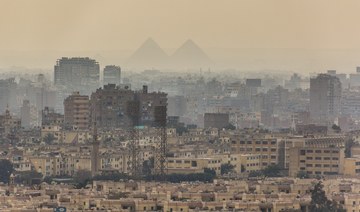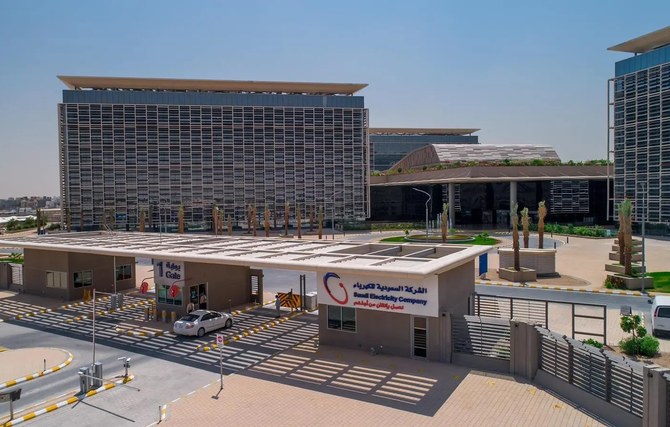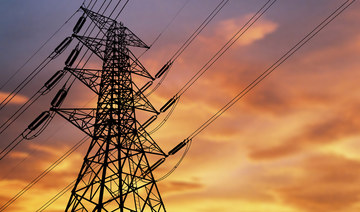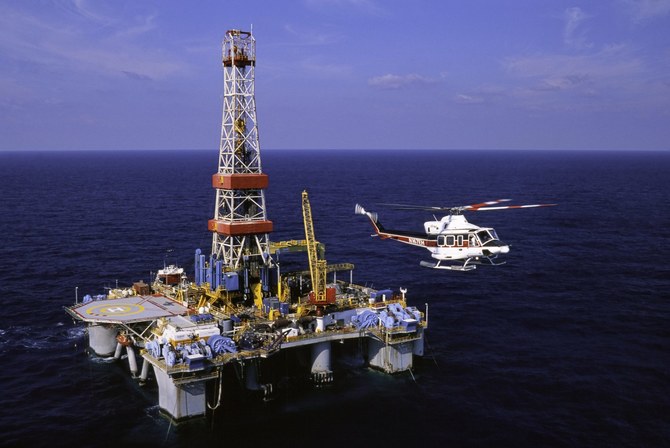RIYADH: Bitcoin hit a six-month high and was within striking distance of its all-time peak on Tuesday, as traders bet an anticipated listing of a futures-based US exchange-traded fund (ETF) could herald investment flows into cryptocurrencies.
Bitcoin has been known for its volatility for 13 years and has recently been trading fairly flat, but it has been surging around 40 percent this month on hopes that the emergence of Bitcoin ETFs will see billions of dollars managed by pension funds and other large investors flow into the sector.
ProShares Bitcoin Strategy ETF is expected to list on Tuesday under the ticker BITO, provided the U.S. regulator, the Securities and Exchange Commission, does not object.
Analysts said the ETF would also likely simplify access to cryptocurrencies for retail investors.
"It can attract flows from investors who prefer the ease of an ETF over the perceived risk of an exchange," Martha Reyes, head of research at crypto exchange Bequant said.
Other analysts have also cautioned that the fund will not invest directly in bitcoin rather in Chicago-traded futures, so any immediate effects of the flows may be limited.
Crypto ETFs have launched this year in Canada and Europe amid surging interest in digital assets. VanEck and Valkyrie are among fund managers pursuing such products listed in the US, although Invesco on Monday dropped its plans for a futures-based fund.
The Nasdaq on Friday approved the listing of the Valkyrie Bitcoin Strategy ETF and Grayscale, the world's largest digital currency manager, is planning to convert its Grayscale Bitcoin Trust into a spot bitcoin ETF, CNBC reported.
The launch of the first bitcoin futures ETF on Tuesday marks a major step toward legitimizing the cryptocurrency, but some investors in such funds may face higher costs compared with buying the digital currency itself, Reuters reported.
ProShares will be backed by the CME Group's bitcoin futures instead of the actual virtual asset itself. Its offering is expected to lead to more launches of futures-based ETFs in the coming days and weeks after years of regulatory roadblocks.
Market participants generally praised the relative ease and safety of owning an exchange-traded product instead of buying bitcoin from cryptocurrency exchanges and brokers.
Investors won't have to worry about custody and securing their digital wallets, although analysts said there are top-tier exchanges that offer these services to their customers as well.
Futures
A futures-based ETF price will not necessarily match the current price of the underlying asset.
"In most cases, such futures funds based on commodity assets such as gold tend to underperform physical ones," Mikkel Morch executive director at crypto and digital assets hedge fund ARK36 said.
In addition to the risk of a futures-based bitcoin fund underperforming bitcoin, it also comes with the cost of the futures roll-over, some analysts said. However, analysts believe investors will still buy the futures-based funds despite the higher cost.
Trading
Bitcoin, the leading cryptocurrency in trading internationally, traded higher on Tuesday, rising by 0.99 percent to $62,494 at 5:20 pm Riyadh time. While Ether, the second most traded cryptocurrency, traded at $3,813, up 0.57 percent, according to data from Coindesk.




















